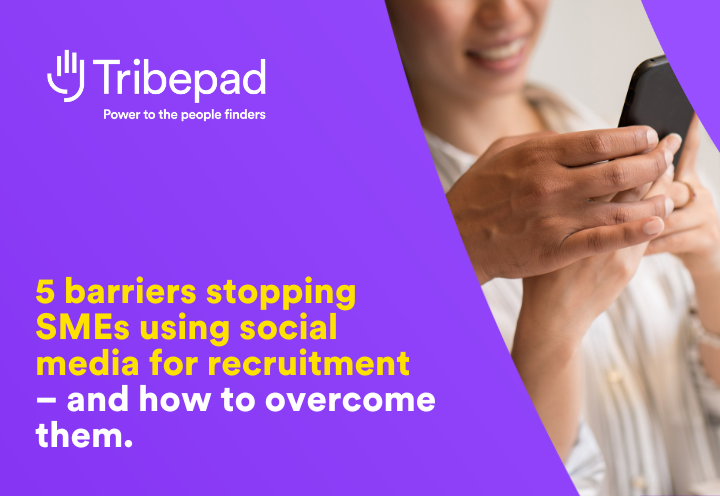Coronavirus cuts mean lots of recruiters are unexpectedly looking for a new job.
Tech recruiters have been hit especially hard, for example. Like Sonder, who’ve had to lay-off 80% of their recruitment team. And in the UK, the latest figures show there are three-quarters of a million fewer people on payroll in August compared to March.
That’s upsetting and unsettling – but there’s plenty of opportunity out there too.
For every hospitality business that’s facing serious job cuts, there are hospitals, retailers and food manufacturers desperate to meet hiring booms. (We recently handled a 3900% increase in applications to retail clients, for example.)
But if you’ve just lost your job, your confidence has probably taken a hit (even though you know it’s no reflection on you!)
You might be unsure what to put yourself forwards for, and uncertain how best to sell yourself. Especially if you’re going after a role that’s not an exact like-for-like. Especially in a competitive environment.
Here’s a practical toolkit to help you find a new job – in recruitment or using your transferable skills – as fast as possible.

Widen your hunting ground
Make sure you’re searching broadly enough to embrace all possible job opportunities. A like-for-like recruitment role might be your ideal choice but don’t limit your horizons based on preconceptions that might be totally wrong.
You could move from in-house to agency and back, for instance. Or from permanent recruitment to contract or temp recruitment. Or from one industry to another. Or from high-volume recruitment to executive search.
Or outside recruitment, into sales. Or HR. Or into customer success. Account management. Project management. Executive support. PR. Event management.
Read more: 9 alternative career choices to enter after recruitment
This could prove an unexpected opportunity to discover a new career path that ticks all your boxes. And at worst, it’s a short-term blip where you’re staying financially afloat and broadening your skillset, ready for the next phase.
Map out your strengths
Map out your skills – literally, get scrawling! – to give yourself confidence.
- You’re hyper-organised. You’re fantastic with people. You consistently balance competing personalities and priorities to keep everyone happy.
- You’re great at building relationships. You’re laser-focussed on targets. You understand the wider business landscape, and why people priorities matter.
- You’re a great leader. You’re deeply empathetic – not no-nonsense. You cope well with a pressure-cooker environment. You’re a salesperson.
Once you start writing, you’ll probably be surprised how many unexpected jobs you could be great at. With your transferable skills, heaps of doors will open with only a gentle nudge.
Understand the new ground rules
Transferable skills aside, it’s also crucial to know what you don’t know.
For recruiters changing roles, adaptability is one of the biggest question marks over your name. Any business, agency, employer or rec2rec wants to know you’re humble enough to learn and adapt, however successful you’ve been elsewhere.
For instance, agency recruiters who focus exclusively on billing figures might find short shrift with in-house teams where internal relationship-building matters more. Or ex-creative recruiters will need to prove they’re prepared for the corporate environment of financial executive search recruitment. And so on.
Showing you’re well-informed also answers the other big question mark: do you know what to expect?
If you’re an in-house recruiter moving into sales, will you hate cold calling and end up leaving within three months? If you used to recruit for permanent staff and you’re moving to a temp agency, will you thrive or flounder under the ‘we need someone by 8am tomorrow’ pressure?
It’s an obvious point but don’t skimp on research. Approach other recruiters in the space you’re applying to (or in the company itself!), to get the inside scoop.
Refresh your CV
If you need a new job yesterday, the temptation is to apply to everything immediately. You can’t win the race without a horse in the running, after all.
But do take the time to write a tailored cover letter and/or covering statement for each role – especially if you’re changing the type of role you’re going for. It’s about answering those implicit question marks above your name, as soon as possible.
(We know you know this stuff matters. But it’s the cobblers’ children’s lack of shoes analogy. Easy to tell candidates; easy to forget as a candidate…)
Now’s also a great time to refresh your CV, which might’ve been languishing untouched on your computer for years.
Most employers will be eager to help however possible given the circumstances. It could be a great time to approach your old boss/director/team and ask for figures/stats/accomplishments/references.
Leverage your network
As a recruiter, you probably have one of the best networks going. Don’t just scour job ads – talk to people in your network. Get ahead of the curve. Who’s hiring? Who could be? Who’s interested in chatting to good people?
- In-house recruiters, maybe that awesome agency on your PSL would love to chat to you, even if there’s no official role open.
- Or maybe you’re from that awesome agency on the PSL, and the in-house team would welcome you and your pre-existing knowledge of their processes and culture.
- Maybe candidates you’ve placed, or employees who’ve moved on, could put in a good word for you.
You’ve spent your career building relationships. Now’s the time to put them to work for your own gain.
Bolster your testimonial collection
Hopefully you’ve been proactively collecting testimonials and references throughout your career. But even if you haven’t, now’s the time.
As a recruiter, your personal brand always matters (and you definitely have one, even if you don’t actively maintain it…). But now it really matters, and can give you the edge for new roles.
Make a list of everyone you could approach. Old boss? Check. People you managed? Check. Colleagues? Check. Candidates you’ve placed? Check. Employees you hired? Check.
Approaching people can feel awkward – especially former colleagues or people you haven’t worked with for a while – but don’t psych yourself out. Everyone’s human and will understand your situation. You could say something like:
“Hi Jack – Long-time no speak, hope you’re well. I’m actually messaging to ask a quick favour. I’ve sadly been laid-off thanks to COVID-19, so am collecting testimonials from former colleagues to help boost my profile and get me back on my feet.
Would you be willing to write me a quick something? Your help would be much appreciated!”
Not confident messaging people? Brush up your copywriting skills first…
You could even give people a little direction, if you want to emphasise certain skills. Like: “I’m actually applying for project management roles so my work implementing the new ATS feels especially relevant, but I’d be thrilled with anything you write”.
Once you have a decent collection, you could amalgamate them into your cover letter or covering statement. Like: “People who’ve worked with me repeatedly say I’m firm-but-fair, a trusted leader that brings exceptional organisational skills to the table”.
Use Tribepad RecruiterHub (it’s totally free)
We work with heaps of recruiters across loads of industries, so layoffs have often hit close to home. We’ve been gutted to see some of the best and brightest recruiters lose their jobs – and also seen the other side, with many teams under huge pressure to meet extra demand.
That’s why we built RecruiterHub, to harness our network to connect fantastic recruiters with fantastic teams who need their skills. It’s totally free with no fees, no commitments and no strings.
Just register here, and we’ll get back to you with your account details.
Suddenly losing job security sucks. But everything’ll be OK. You’ve absolutely got this. You’ve got incredible transferable skills that open heaps of doors, even during difficult times. Keep your chin up – we’ve got every faith in you!




